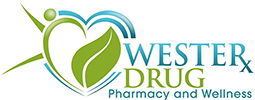Over the past couple of years, the focus of my pharmacy practice has been evolving. While medications certainly provide life saving and symptom improving benefits, I have touted myself as “The pharmacist who doesn’t like drugs.” To some, this may seem folly and a quick path to putting myself out of work. But to me, this is the culmination of 20 plus years of practice and the realization that “Drug companies don’t make cures, they make customers.”
Arguments can be made that cures are in fact the goal of big pharma and I would agree with a few examples. Antibiotics must lead this argument in that they can lead to the cure of an infection. Chemotherapeutic agents, used to treat cancers, may also fit assuming the patient reaches the defined state of “cure” rather than “in remission.” I would offer arguments that medications amongst the most commonly prescribed drugs, anti-diabetic medications, anti-hypertensive (high blood pressure) agents, GI or stomach medications and even most psych medications do little more than treat and control symptoms. Furthermore, many require prolonged if not life-long therapy to achieve these benefits. As a healthcare provider, this is frustrating.
Currently I own 2 independent pharmacies and it is safe to say that most of the people that come in are paying me for my services out of reluctance. They are “forced” to come in to pay for products that, while they don’t want, their physician has told them they have to take for their own benefit. In a way, it could be said that I am an expert in selling people, sometimes grouchy people, something they don’t at all want. But is this really healthcare? It’s been said that this is really “sick care” because we are providing care after the fact.
As a practioner, I have practiced in many arenas. Years of advanced and specialty training led me through the areas of hospital pharmacy, major chain pharmacy, poison control center, research and academia. A common thread was that we, as healthcare providers, treat patients after they have been diagnosed with disease. The emphasis was consistent, relieve symptoms and try to minimize damage already done by said disease.
So how has my practice evolved?
First, we still have a traditional dispensing. But our focus has been shifting to prevention. We focus on helping people make better life-style choices that may prevent disease. We use education and all-natural, pharmaceutical grade supplements to provide nutrients that the body may be otherwise missing. And not all vitamins and supplements are equal. There really are very important differences but I will discuss those in a later blog. My emphasis is always about building a solid foundation of health. As simple as it may sound, this starts with a core of 5 key components. Nutrition and exercise are the cornerstone of these efforts. This may sound like just another weight loss program but weight control is key to good health. Sleep and stress management are 2 additional core components that support health. A final, very import act of health is mental and spiritual grounding. Spirituality can encompass many meanings but I do not intend this to be exclusive or strictly religious when working with people. Instead, being grounded in one’s beliefs and focusing one’s energy on a higher power, whatever that might be for an individual, aid in all of the other core components of health. The idea behind all of this is PREVENTION.
Preventing disease has become the driving force behind healthcare reform.
It is certainly healthier to prevent disease than it is to treat disease. Additionally, it is cheaper. Research has shown that many diseases are tied to one another. Once one disease develops, there are direct correlations to the development of certain additional diseases. An example might be a person who overeats and is fairly sedentary may develop cholesterol issues. The poor diet associated with cholesterol problems can lead to diabetes, and vice versa. Failure to make life-style changes may lead to high blood pressure (hypertension). A conglomeration of such diseases can lead to depression. Further complications may include nerve and vision issues, and decreasing function if the kidneys and other organs. In a case such as this, some, if not most of these diseases and complications could have been prevented, or at the very least, minimized, by better life-style choices.
So herein lies the challenge.
Helping people to look at pharmacy in a different light than it has been traditionally viewed. Pharmacists complete 6-7 years or more of eduction and are the most accessible healthcare providers. Yet many are enslaved by the corporate approach to retail, losing the health provider approach. Little time is allowed for focus on health maintenance and disease prevention. Furthermore, many pharmacists lack an in depth knowledge to guide folks in making quality decisions about their health and choosing (and knowing what is) a quality supplement or vitamin that will make a truly positive impact on one’s health.
Choosing a pharmacist is really about choosing health.
I highly recommend choosing a pharmacist and pharmacy BEFORE you think you need one. Choose one who is not just a pill dispenser – hell, a robot could do that! Choose one that cares about your health and can serve you in a way so as to PREVENT disease. I say this because, a true healthcare provider shows his/her patients how to live so that they seldom, if ever, NEED a healthcare provider.
Cory
